Consumer Rights

Consumer Commission Pulls Up PVR Inox for Delayed Show Due to Ads; Orders ₹5,000 Compensation
The Consumer Commission has held that screening commercial advertisements after the scheduled movie time breaches contractual obligations.
In this case, the complainant’s 10:00 PM show began at 10:09 PM due to advertisements. The Bench ruled that the time printed on the ticket forms a binding contract, and any deviation without the consumer’s consent amounts to a deficiency in service and unfair trade practice.
Accordingly, PVR INOX Limited was directed to pay ₹5,000 as compensation and ₹3,000 as costs, and to strictly adhere to show timings.
BookMyShow was not held liable, being merely a ticketing intermediary.
[Harsha Vardhan Gujjeti v. M/s. INOX Leisure Ltd. & Ors.]
MananBookmark
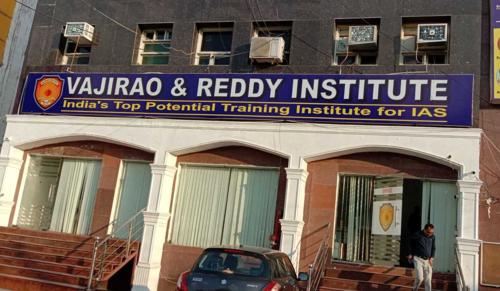
CCPA Imposes ₹15 Lakh Penalty on Vajirao & Reddy for Misleading UPSC Ads
The Central Consumer Protection Authority (CCPA) has imposed a ₹15 lakh penalty on Delhi-based coaching institute Vajirao & Reddy for publishing misleading advertisements regarding UPSC CSE 2023 results.
The Authority found that claims such as “645 selections out of 1016 vacancies” created a false impression among aspirants.
Investigation revealed that 431 of the claimed successful candidates were not enrolled in any programme offered by the institute, and many others were only part of limited interview guidance courses.
Holding the conduct to be a subsequent contravention under the Consumer Protection Act, 2019, the CCPA directed the institute to pay the penalty, cease misleading advertisements, and file a compliance report within 15 days.
MananBookmark
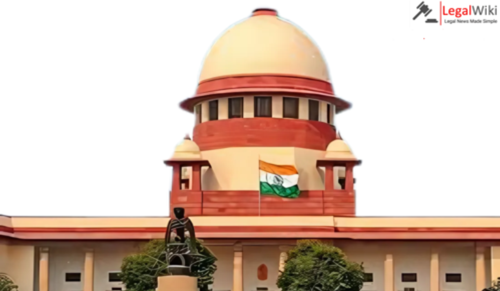
Supreme Court Flags Insufficient Budgetary Allocation to Railways, Says Common Man's Safety Important
The Supreme Court of India questioned Indian Railways on why accident insurance is available only for passengers buying tickets online, not for those purchasing physical tickets at counters.
Justices Ahsanuddin Amanullah and K Vinod Chandran highlighted this unfair difference, asking Additional Solicitor General Vikramjit Banerjee to explain.
The court reviewed a railway safety report and directed focus on fixing tracks and railway crossings first, as these are key to preventing accidents. It asked Railways to submit a detailed update with timelines on these safety steps and the insurance issue.
The matter is listed for January 13, 2026.
[UOI v. Radha Yadav]
VishwaBookmark

Supreme Court Seeks Centre’s Response on Plea to Exclude Doctors from Consumer Protection Act
The Supreme Court sought responses from the Union Ministries of Health and Consumer Affairs on a plea seeking to exclude doctors from the Consumer Protection Act, 2019.
The PIL was filed by the Association of Healthcare Providers (India), challenging the treatment of medical services as “services” under consumer law.
The petition argued that applying consumer law to healthcare promotes defensive medical practice and undermines the trust-based doctor–patient relationship. It stated that medical treatment involves professional judgment in uncertain situations and should not be equated with commercial services.
The plea further contended that doctors are already regulated through medical councils, civil courts and criminal law, which are better suited to examine allegations of medical negligence.
Thanush SBookmark

CCPA Directs Barbeque Nation to Stop Levying Service Charge
The Central Consumer Protection Authority has directed Barbeque Nation to discontinue levying service charge at its restaurants.
The order followed a consumer complaint alleging the collection of a service charge in January 2025.
The Authority noted that while the levy was then protected by an interim Delhi High Court order, the amount was fully refunded and the practice was discontinued after the High Court’s March 2025 ruling holding service charge to be voluntary.
Finding no unfair trade practice, the CCPA closed the proceedings under the Consumer Protection Act, 2019.
MananBookmark
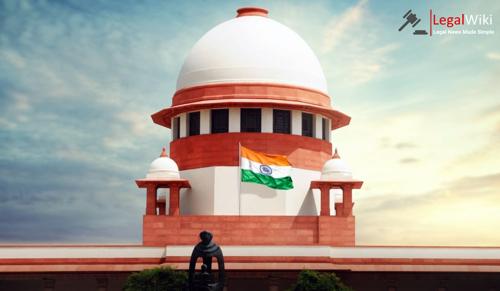
Leasing Out Flat Does Not Exclude Homebuyer from Consumer Protection: Supreme Court
The Supreme Court held that merely leasing out a residential flat does not exclude a homebuyer from the definition of “consumer” under the Consumer Protection Act, 1986.
Setting aside an NCDRC order, the Court ruled that a buyer remains a consumer unless it is proved that the dominant purpose of purchasing the property was commercial profit-making.
It observed that the burden to establish a commercial purpose lies on the developer.
Finding no material to show a direct nexus between the purchase and profit-generating activity, the Court restored the consumer complaint and directed the NCDRC to decide it on merits.
[Vineet Bhari v. MGF Developers]
MahiraBookmark
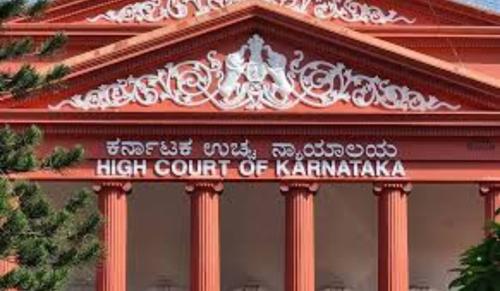
Karnataka High Court Stays ₹10 Lakh Penalty on Flipkart
The Karnataka High Court has stayed a ₹10 lakh penalty imposed on Flipkart by the Central Consumer Protection Authority (CCPA) for allowing the sale of walkie-talkies without mandatory licensing and regulatory disclosures.
Justice BM Shyam Prasad also stayed the direction requiring Flipkart to conduct periodic self-audits.
The CCPA had held Flipkart and Meta Platforms liable for misleading advertisements and unfair trade practices under the Consumer Protection Act, 2019. Flipkart argued that it acted merely as an intermediary and that compliance obligations lie with sellers.
Taking note of these submissions and product removals, the Court granted interim relief.
[Flipkart v. CCPA]
22 days ago
MananBookmark

Delhi Consumer Court Awards Compensation for Deficient Air Travel Services
The Delhi District Consumer Commission held that Air India was guilty of deficiency in service for failing to provide basic facilities on an international flight.
It observed that broken seats, unhygienic washrooms, poor food quality and non-functional in-flight entertainment caused mental agony and harassment to the passengers.
The Commission held that airline passengers are “consumers” under the Consumer Protection Act, 2019, and are entitled to services mandated under DGCA regulations.
While it declined a ticket refund since the journey was completed, the Court directed Air India to pay ₹1.5 lakh as compensation and litigation costs, noting the airline’s failure to rebut the complaints adequately.
[Shailendra Bhatnagar v. Air India & Anr.]
MananBookmark

Counsel Cannot Settle Cases in Lok Adalat Without Written Authority: Gauhati High Court
The Gauhati High Court has held that a settlement recorded in a Lok Adalat must be arrived at with the free consent of the parties, and that counsel cannot enter into a compromise without written authorisation.
The case arose from a challenge to a settlement recorded in a National Lok Adalat in an appeal pending before the Assam State Consumer Disputes Redressal Commission.
The Court found that no authorised representative of the company was present and no authority letter was produced.
Holding that such a settlement defeats the object of the Legal Services Authorities Act, 1987, it set aside the Lok Adalat order and directed the Commission to decide the appeal on merits.
[Mahindra & Mahindra Financial Services Ltd v. Hakim Uddin]
Thanush SBookmark

Belagavi Consumer Commission Holds redBus, Bus Operator Liable After Breakdown Mid-Journey
The Belagavi District Consumer Disputes Redressal Commission held that redBus and Pauls Travels were jointly liable for deficiency in service after the bus booked by the complainants broke down mid-journey and no alternate transport was provided.
The Court held that redBus could not escape liability as there existed a clear commercial tie-up and privity of contract between the booking platform and the bus operator.
The Commission directed a full refund of the ticket amount with interest at 8 percent per annum, awarded ₹20,000 as compensation for mental agony, and granted ₹5,000 towards litigation costs.
The Court held that online booking platforms share responsibility when services booked through them fail.
[Ashok Kadam & Ors. v. redBus India Pvt. Ltd. & Anr.]
MananBookmark

CCPA Fines Flipkart, Meta ₹10 Lakh Each Over Undisclosed Walkie-Talkie Listings
The Central Consumer Protection Authority imposed penalties of ₹10 lakh each on Flipkart and Meta Platforms for hosting walkie-talkie listings that lacked mandatory disclosures on licensing and regulatory compliance.
The action was taken after the Authority found that consumers were not properly informed about the legal conditions governing the use of such devices.
The Authority noted that walkie-talkies are regulated telecom equipment under the Indian Wireless Telegraphy Act, 1933, and allied rules, with licensing exemptions applicable only to specified devices.
It held that the failure to disclose these requirements amounted to a breach of due diligence obligations under the Consumer Protection (E-commerce) Rules, 2020, constituting misleading advertisements and unfair trade practices under the Consumer Protection Act, 2019.
Thanush SBookmark
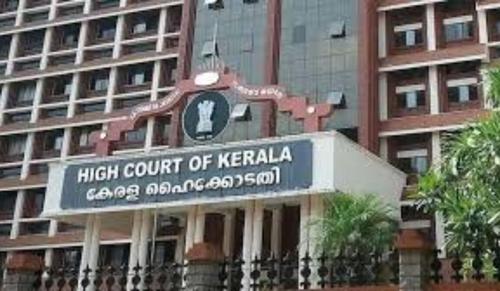
Kerala High Court Grants Relief to Actor Mohanlal in Manappuram Finance Case
The Kerala High Court quashed consumer proceedings against actor Mohanlal arising from allegations that Manappuram Finance charged higher interest rates than those advertised in campaigns featuring him as brand ambassador.
The Court held that mere status as an endorser does not attract liability for unfair trade practices unless a direct nexus between the endorser and the transaction is established.
It clarified that grievances regarding misleading advertisements may be pursued under Section 21 of the Consumer Protection Act, 2019.
MananBookmark
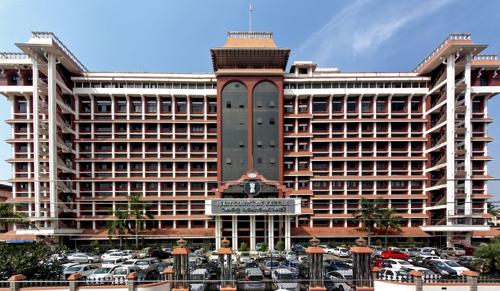
Kerala High Court Absolves Actor Mohanlal in Manappuram Finance False Advertisement Case
The Kerala High Court quashed criminal proceedings against actor Mohanlal in a case alleging false advertisement by Manappuram Finance Ltd.
The Court held that merely endorsing a product does not automatically attract criminal liability unless there is material to show knowledge or intent to mislead consumers.
It observed that the complaint did not disclose any specific role played by the actor in formulating or approving the allegedly misleading claims.
In the absence of prima facie evidence establishing mens rea or direct involvement, the Court ruled that continuation of proceedings would amount to abuse of process of law.
[Mohanlal v. State of Kerala]
MahiraBookmark

Breach of Guest Privacy: Consumer Commission Orders Leela Palace Udaipur to Pay ₹10 Lakh Compensation
The Chennai North District Consumer Disputes Redressal Commission has held Leela Palace, Udaipur, liable for breach of guest privacy, terming it a clear deficiency in hospitality services.
A Chennai-based lawyer had booked a grand room for ₹55,500 on a non-refundable basis. During her stay on January 27, 2025, a housekeeping staff member entered the occupied room using a master key without consent while the guest and her husband were in the washroom.
Rejecting the hotel’s defence of internal SOPs and lack of malicious intent, the Commission held the service to be fundamentally defective.
It directed refund of ₹55,500 with 9% interest, ₹10,000 as litigation costs, and ₹10 lakh as compensation.
[SN v. Schloss Udaipur Pvt. Ltd.]
Thanush SBookmark

NCDRC Holds Ludhiana Hospital and Doctors Accountable for Surgery Without Confirmed Diagnosis
The National Consumer Disputes Redressal Commission has upheld a 2018 order of the Punjab State Consumer Commission holding Ludhiana Hospital, its surgeons, and pathologists from Dayanand Medical College liable for medical negligence.
The case concerned a radical facial surgery for suspected cancer conducted solely on a pathology report that was merely “suggestive of malignant melanoma” and clearly required immunohistochemistry confirmation.
The procedure resulted in permanent facial disfigurement and lasting trauma to the patient.
While affirming liability, the NCDRC declined to enhance the ₹55 lakh compensation, excluded one surgeon due to limited involvement, and increased litigation costs to ₹5 lakh.
[Kanwalpreet Kaur v. Dayanand Medical College & Ors.]
Thanush SBookmark
